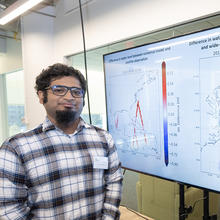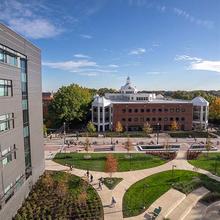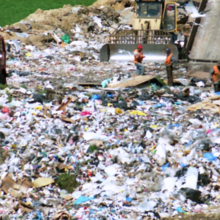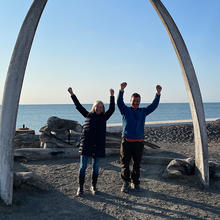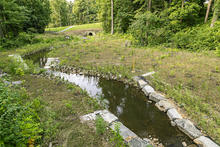- April 2, 2024
Civil engineering professor David Lattanzi teams up with colleagues in the College of Public Health to help build a new tool that will help clinicians identify bruises and injuries from domestic violence in a new way.
- March 5, 2024
The funding will help develop new tools in imaging technology using a light source that is five times better than white light for identifying and visualizing bruising across all skin tones for use by forensic nurses, social service providers, and law enforcement.
- February 5, 2024
Fuse at Mason Square will give student researchers like Soelem Aafnan Bhuiyan a dedicated space for globally impactful research.
- January 23, 2024
Mason scientists and partners will leverage their climate expertise and the university’s resources into broader societal implications, thanks to a $6 million grant from the National Science Foundation (NSF).
- January 22, 2024
Mason engineering professor Kuo Tian is monitoring landfills to make sure our trash doesn't contaminate drinking water.
- October 24, 2023
Certain types of mushrooms—or fungi—may have a place in infrastructure, potentially saving costly repairs and time. Xijin “Emma” Zhang, assistant professor in civil engineering, is researching this relatively new area of engineering and other green technology solutions for common challenges.
- October 23, 2023
With nearly 1,000 acres of land, waterways, forests, and buildings, George Mason University’s campuses are a dynamic, living learning environment of hands-on applied research.
- October 23, 2023
With funding from the Virginia Department of Transportation (VDOT), CEIE professor Shanjiang Zhu and his research team will reconcile travel data from three different sources—surveys, smartphones, and connected vehicles—into invaluable travel information.
- August 23, 2023
The National Science Foundation's Navigating the New Arctic researchers traveled to a remote location to attend the Permafrost and Infrastructure Symposium in Utqiaġvik, Alaska, some 320 miles north of the Arctic Circle.
- August 1, 2023
Mason is deeply committed to pioneering processes that can answer the grand challenges of water, its responsible management, and sustainability. In fact, the university’s interdisciplinary approach and cutting-edge research as part of its strategic direction, has turned Mason’s campuses into a Living Lab.



